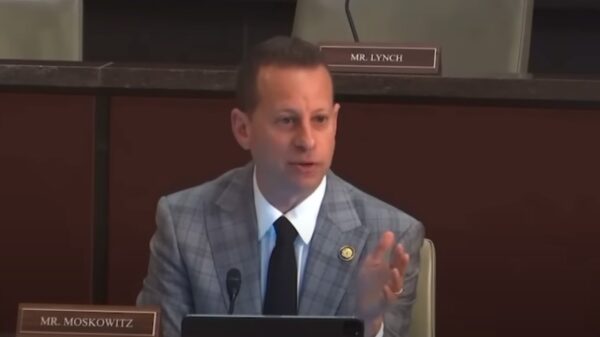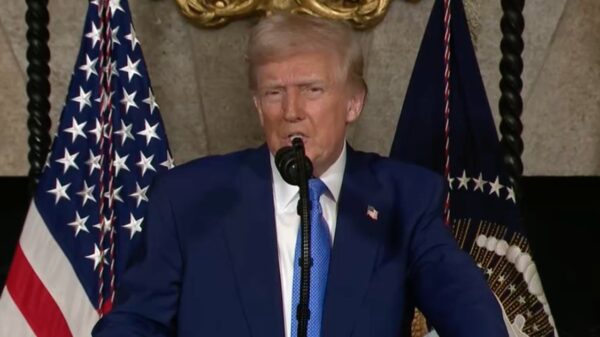As the U.S. House gets ready to vote on a $2 trillion bill to help the economy weather the coronavirus crisis, some members of the Florida delegation have helped craft it.
U.S. Sen. Marco Rubio, R-Fla., the chairman of the U.S. Senate Small Business and Entrepreneurship, helped steer $377 billion for small businesses. Rubio had the support of U.S. Sen. Ben Cardin, D-Mary., the ranking Democrat on the Committee, and U.S. Sen. Susan Collins, R-Maine, and U.S. Sen. Jeanne Shaheen, D-NH, on the “Keeping American Workers Paid and Employed Act” as part of the “Coronavirus Aid, Relief, and Economic Security (CARES) Act.”
Rubio weighed in on his efforts this week.
“The unprecedented crisis facing our nation’s small businesses and their employees requires an immediate, bold response,” Rubio said. “I am confident that we have assembled a bipartisan emergency relief package that will get cash to small businesses, and the Americans they employ, that desperately need it during this pandemic. I appreciate the work that we were able to accomplish in a bipartisan fashion with Ranking Member Cardin, as well as Senators Collins and Shaheen. I look forward to the swift passage of the CARES Act in the Senate, and urge the House to take it up immediately in order to get it to the President for signature.”
“American small businesses are facing an existential threat. The unprecedented public health measures cities and states have taken to slow the spread of the COVID-19, while necessary to protect public health, are having a tremendous impact on small businesses in every community in America,” Cardin said. “Congress has a duty to ensure that America’s 30 million small businesses, and the 60 million people they employ, are not forced to bear the financial costs of keeping our communities safe on their own. I am grateful that Chairman Rubio, Senators Collins and Shaheen, and I were able to reach a bipartisan agreement to include $377 billion in support for small businesses in the stimulus.”
“Every day, I am hearing from small business owners who are anxious about the future of their businesses and how they can continue to pay their employees. The last thing they want to do is to lay off their employees, but they fear they may have no choice. When these businesses suffer, it has a cascading effect on workers, from housekeepers to wait staff to bartenders to fishermen to drivers to retail clerks,” Collins said. “Help is on the horizon that would allow them to weather the current storm. As members of the Small Business Task Force, Senators Rubio, Cardin, Shaheen, and I worked day and night on this bipartisan $377 billion small business economic relief plan. It is past time that we deliver this urgently needed aid for the employees of small businesses across our nation and get the job done for the American people.”
“Over the last week, I’ve kept in close contact with New Hampshire’s businesses who are reeling from this crisis — these conversations were invaluable as I helped negotiate this vital legislation to aid our small businesses,” Shaheen said. “New Hampshire’s small business owners are lying awake at night worried about whether they can stay afloat and keep their employees on payroll. This moment of crisis demands that Congress take bold action to help these entrepreneurs and their workers. To New Hampshire and the nation’s small businesses, I want to make it clear: help is on the way. While we did not always agree and there are certainly measures I wish we could have included, this agreement is a product of good faith bipartisan negotiations and will provide real relief. I want to sincerely thank my partners, Senators Rubio, Cardin and Collins, for their constructive approach throughout this process. Small businesses are fundamental to New Hampshire’s economy and this assistance can’t come quickly enough. Let’s get this assistance across the finish line and continue to work in a bipartisan way to rescue our economy, prioritizing the financial security of our working families and small business entrepreneurs. More legislation will certainly be necessary going forward.”
Rubio’s efforts include creating the “Paycheck Protection Program” which his office noted was a “nearly $350 billion program to provide eight weeks of cash-flow assistance to small businesses through 100 percent federally guaranteed loans to employers who maintain their payroll during this emergency” and will “cover payroll costs, paid sick leave, supply chain disruptions, employee salaries, health insurance premiums, mortgage payments, and other debt obligations to provide immediate access to capital for small businesses who have been impacted by COVID-19.” The proposal also funds $265 million in grants “to offer counseling, training, and related assistance to small businesses affected by COVID-19 to SBA resource partners, including Small Business Development Centers and Women’s Business Centers and $10 million for the Minority Business Development Agency’s Minority Business Centers and Minority Chambers of Commerce.”
The bill also creates a $10 billion program for small businesses which “have applied for an EIDL loan to request an advance of up to $10,000 on the loan to provide paid sick leave to employees, maintaining payroll, and other debt obligations” and requires SBA to pay all principal, interest and fees on all new and existing SBA loan products including 7(a), Community Advantage, 504, and Microloan programs for 6 months, and provides $17 billion for this purpose.”
With the Senate passing the bill on a 96-0 vote on Wednesday, the focus now turns to the U.S. House which is scheduled to vote on it on Friday. Members of the Florida delegation helped craft the bill which will be on the House floor on Friday.
U.S. Rep. Stephanie Murphy, D-Fla., who sits on the U.S. House Ways and Means Committee, was able to bring her proposed “Employee Retention Tax Credit (ERTC)” into the package.
“Coronavirus is an unprecedented public health and economic crisis requiring an unprecedented response from the federal government,” said Murphy. “I’m pleased we were able to get an employee retention tax credit in this package, which hopefully will soon become law. This credit will help employers – especially small businesses – retain and pay their employees rather than lay them off. This measure will prevent layoffs, ensuring Americans affected by this virus have a job after this crisis is over.”
Murphy’s proposed credit “is equal to 50 percent of qualified wages (including health expenses) paid to an employee after March 12, 2020 in each calendar quarter, up to a total of $10,000 in qualified wages per employee for all quarters” and is “taken against employment taxes, with any excess refunded to the employer.”
“For employers with 100 or fewer employees (measured by average employment in 2019), the credit applies if the employer had to fully or partially suspend operations due to an order from a governmental authority, or had a decline in revenue for any calendar quarter in 2020 of 50 percent compared to the same quarter in 2019,” the congresswoman’s office noted. “For employers with over 100 employees, the same conditions apply but the credit applies only to wages paid to employees who are on payroll but not working. The credit covers qualified wages paid after March 12, 2020 to December 31, 2020. The credit expires when (1) the full $10,000 per employee maximum is reached, or (2) when revenue for a quarter in 2020 is above 80 percent of gross receipts for the same quarter in 2019. The credit applies to tax-exempt organizations, including non-profit organizations.”
On the other side of the aisle, U.S. Rep. Vern Buchanan, R-Fla., who also sits on the Ways and Means Committee, also sounds ready to back the package.
“This relief package will help Americans through an unprecedented period of health and economic challenges,” Buchanan said. “The scope of the aid is expansive, from direct payments to Americans to assistance for businesses, hospitals, and state and local governments.”
Still, there are some signs of opposition from the Florida delegation. In recent days, U.S. Rep. Matt Gaetz, R-Fla., took to Twitter and appeared on Fox News, showcasing parts of the package from sending funds to Howard University to the U.S. State Department getting $350 million for migration and refugee assistance.
“Why in the world would we have $350 million for migrants and refugees before we restore the economic condition of every American in our country?” Gaetz demanded.
Still, the package should clear the House and has President Donald Trump’s support.
Reach Kevin Derby at kevin.derby@floridadaily.com.





















